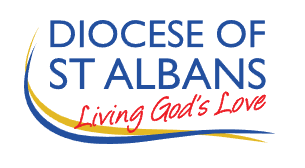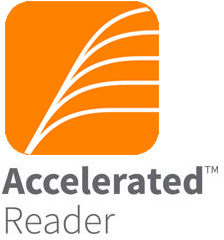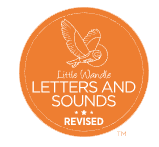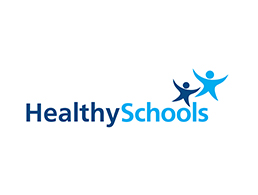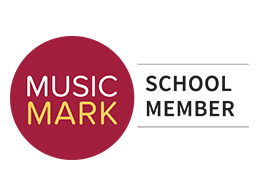Parents Partnership
Your School Needs You!
Do you have skills that you could share in school?
We are aware that many of our parents/ relatives / carers have fantastic skills to offer. We already have parents actively involved in school, which really enhances the children’s learning and enjoyment ofschool, such as the wonderful team who make up the Parent Teacher Association (PTA) and our parent helpers that come into class. We would love to hear from any parents who feel they have skills to share and have some time to help out in school.
If you feel you have a skill and time that could benefit the school please download the complete the attached pdf form.
Parental Partnership
At Toddington St George Church of England School we believe that parents are a child’s first and enduring teachers. They play a crucial role in helping their children learn. Where parents are involved with their children’s education and learning both at home and in partnership with the school, their children do better and achieve more. These benefits can be long-lasting and extend to better health, relationships and improved employment prospects.
Benefits of Parental Partnership
The benefits for the children are:
- It is easier for children to learn when they get encouragement from home.
- They will do better and achieve more when their parents are involved.
- Children get access to more activities in and out of school when there are more adults to help.
- Their concerns can be sorted out more quickly when their parents have a positive relationship with school staff.
- They are happy when their parents are enjoying events in the school.
The benefits for parents are:
- Their children do better when they are involved.
- They are better able to help and encourage their children.
- They have more information about their children’s education.
- Parents can build their own confidence and skills.
- Where there is a positive relationship between parents and their child’s school there are benefits all round.
- Parents get reassurance that their children are receiving a good education.
Daily
Each day as you either drop or collect you child please pass any relevant information regarding your child’s welfare. (For example, any changes in circumstances at home or whether they had a late night.) This helps us ensure we look after your child appropriately.
If you require a longer time to talk to a member of staff please make an appointment. We do want to talk to you but in the morning there are a lot of children who need our attention and after school there are often meetings, so making an appointment ensures we have the time and quiet to talk properly.
Work Sharing
In the autumn and the spring terms there is the opportunity to come and share your child’s work with them. The children are rightly proud of what they have achieved and enjoy sharing and discussing what they have learnt. This is very important as it allows your child to revisit their learning a great way of helping to embed it. It is also a very good way of raising your child’s self esteem. This time also allows you to discuss what your child thinks they need to work on next.
Consultation
Each term there is the opportunity to see your child’s class teacher during a consultation appointment. These appointments allow a short time to, in the autumn term, explain to you how your child has settled, what they are achieving and what they are likely to achieve by the end of the year. In the spring term we discuss what they are achieving now and their progress. In the summer we can discuss any queries raised by your child’s written report.
Should you require a longer appointment to discuss any specific concerns, please make another appointment as this can make the parents still waiting to see staff have to wait for unreasonable lengths of time.
There is also the opportunity to talk to Mrs Spencer (Head teacher) or Mrs Mallett (SENCO)
Open Evening
In the summer term we hold an open evening where some of the fabulous work produced during the year is displayed. It allows you the opportunity to see your child’s current class but also to visit the class they will be moving to the following year. There are also displays in the hall.
Parent Workshops / Meetings
During the year we hold a number of workshops/ meetings to help keep you informed about the curriculum and what and how your child will be learning, some of these are aimed at key stages to make them more pertinent
- The schools focus for the year
- Maths workshop to explain the current approach to the strategies your child will be using in mental maths, as well as what the assessments mean
- Literacy/ Phonics workshop to explain phonics, the reading and handwriting scheme, as well as what the assessments mean
- For key stage two parents a meeting explaining transitions and sex and relationships education at year four
- Meeting for some parents in relation to the phonics test
- Meeting for parents of some more able, talented pupils
- Meeting about the Year Four residential
- Meetings at the end of each academic year to explain the next year. For example ‘Life in Year Two’
Special Educational Needs and Disabilities:
If your child has a particular learning, physical or behavioural need you will receive copies of their Individual Education Plan (IEP) or Behavioural Plan. These can be discussed with your child’s class teacher. The parents of children with a Statement for their educational needs will be invited to an annual review meeting.
Assessment
We continually assess children to ensure they are challenged, but please be aware that children do not progress in a linear way but have periods of quicker improvement and then consolidation.
There are times when more formal assessments occur that are reported nationally. In Year One children undertake the phonics test where they read a range of real and pseudo (alien) words using their phonic understanding.
In Year Two children undertake the Standard Assessment Tests (SAT’s) in reading comprehension, writing (including spelling and handwriting) and Mathematics.
Parents who have children in Years One and Two will be informed of how their children do.





